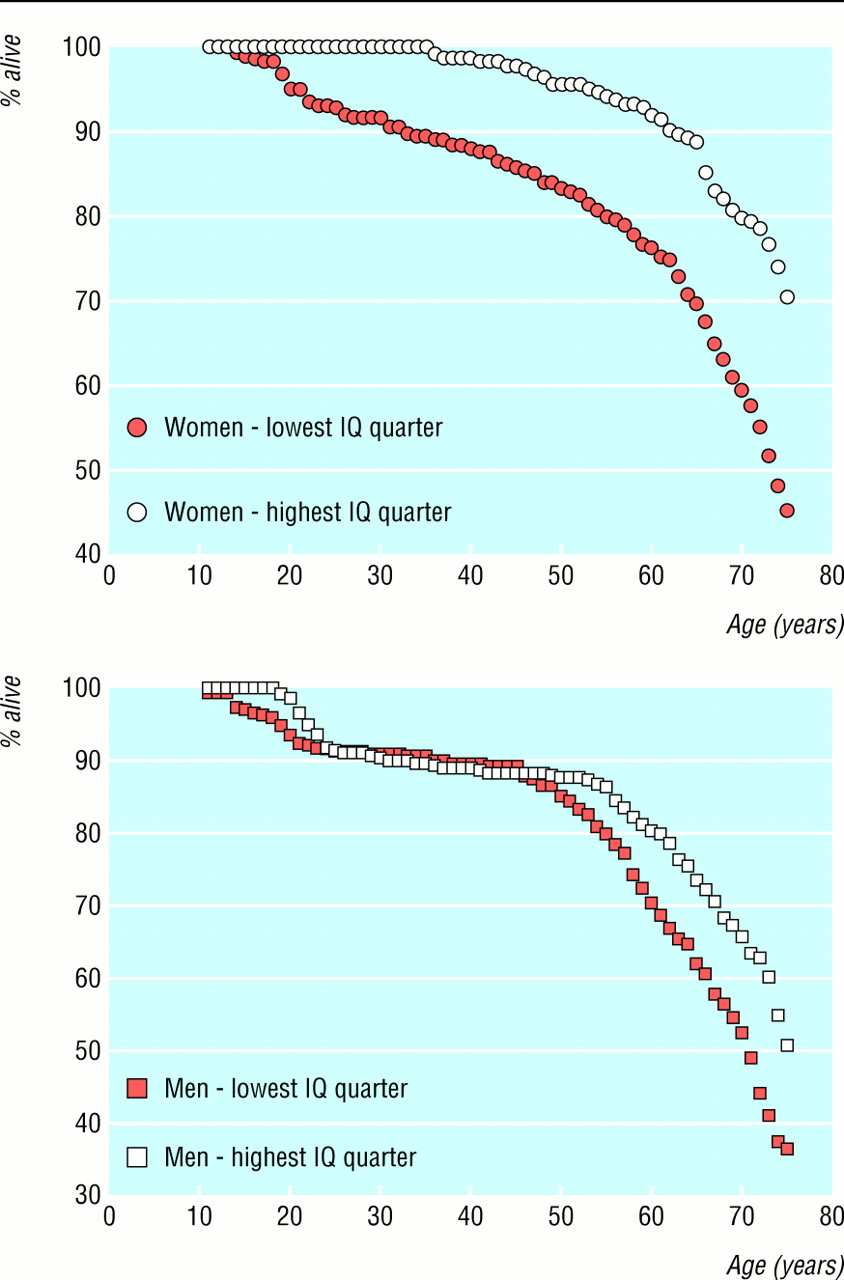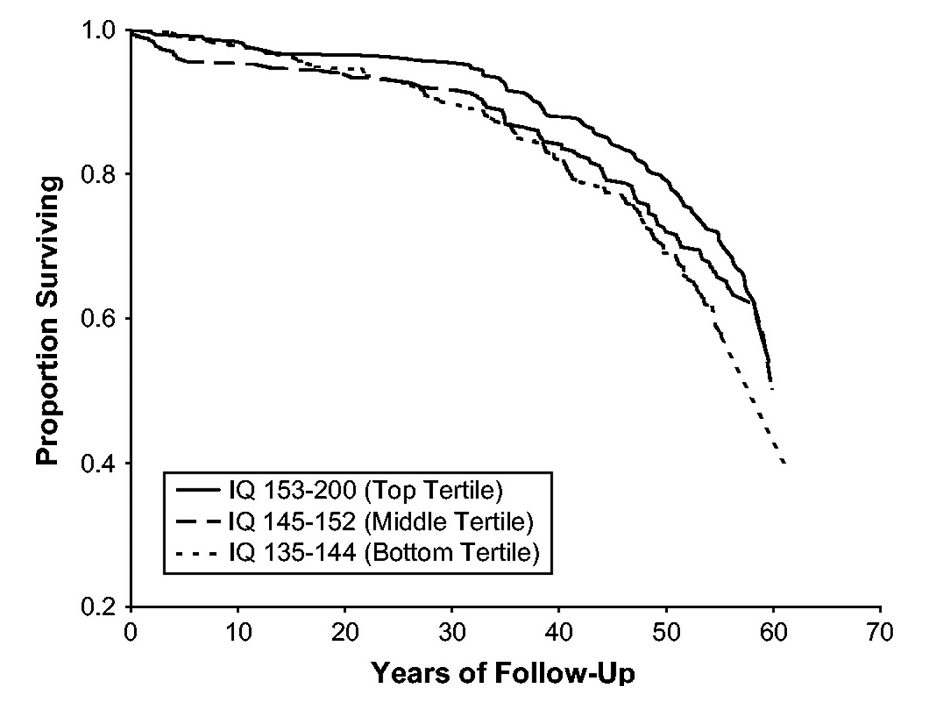Genetic variants increasing intelligence tend to jointly improve physical/mental health while lower intelligence alleles increase pathologies’ likelihood.
Genetic variants increasing intelligence reduce predisposition to diseases as diverse as angina, cardiovascular disease, Alzheimer’s, obesity, hypertension or type 2 diabetes. As a consequence, it’s not surprising to see emerging a strong correlation between intelligence and longevity.
Intelligence is highly polygenic (~10,000 genes involved in intelligence variations, about 1/3 of our genes) and the genes involved have pleiotropic effects: they act simultaneously in a myriad of different systems.
Genetic correlations below are averages of 3 studies (Hill, 2018; Davies, 2018; Savage, 2018).
| PHENOTYPE | rg | |
| Vascular-metabolic | Angina | −0.18 |
| Coronary artery disease | −0.16 | |
| HDL cholesterol | 0.092 | |
| Heart attack | −0.17 | |
| Hypertension | −0.15 | |
| LDL cholesterol | −0.055 | |
| Triglycerides | −0.052 | |
| Type 2 diabetes | −0.07 | |
| Brain measures | Infant head circumference | 0.28 |
| Intracranial volume | 0.26 | |
| Physical and physiological | Age at Menopause | 0.13 |
| Alzheimer’s disease | −0.34 | |
| Birth length | 0.16 | |
| Birth weight | 0.11 | |
| BMI | −0.14 | |
| Chronotype | −0.15 | |
| Fathers age at death | 0.37 | |
| FEV1 | 0.15 | |
| Hand grip strength (right) | 0.086 | |
| Happiness | 0.086 | |
| Head circumference | 0.31 | |
| Health satisfaction | -0.26 | |
| Height | 0.12 | |
| Longevity | 0.3 | |
| Lung cancer | -0.26 | |
| Mothers age at death | 0.48 | |
| Obesity | −0.18 | |
| Osteoarthritis | -0.24 | |
| Overall poor health rating | −0.39 | |
| Parents age at death | 0.37 | |
| Self-rated health | 0.46 | |
| Sleeplessness/insomnia | -0.12 | |
| Smoking status | −0.21 | |
| Tiredness | −0.18 | |
| Waist circumference | -0.1 | |
| Waist-hip ratio | −0.17 | |
| Wears glasses or contact lenses | 0.28 | |
| Longsighted-ness | −0.21 | |
| Shortsighted-ness | 0.32 |
Variants linked to lower intelligence are in general mutant alleles while higher intelligence variants are, individually, frequent. An intelligent person has a low frequency of mutant alleles. It is not surprising that these mutant alleles are globally deleterious.
2019 “What genome-wide association studies reveal about the association between intelligence and physical health, illness, and mortality”
Regarding mental health the pattern is the same: increasing intelligence variants reduce predisposition for schizophrenia, hyperactivity, alzheimer, cognitive decline but slightly increase autism.

Survival curve for men and women. The lowest quartile corresponds to <90 IQ. Highest quartile individuals with an Q.I > 110.

Among the most gifted individuals, IQ remains strongly correlated with longevity.
The higher the IQ, the higher the frequency of intelligence genes with global positive pleiotropic effect on health.

Intelligent individuals live longer, regardless of race. However racial variations in intelligence lead to a parallel racial variation in life expectancy.
Ashkenazy Jews and East-Asians have higher life expectancy than Europeans, who have higher life expectancy than Africans. The primary reason is the racial hiearchy in the frequency of higher intelligence/wealth/longevity alleles (same genes acting pleiotropically).
